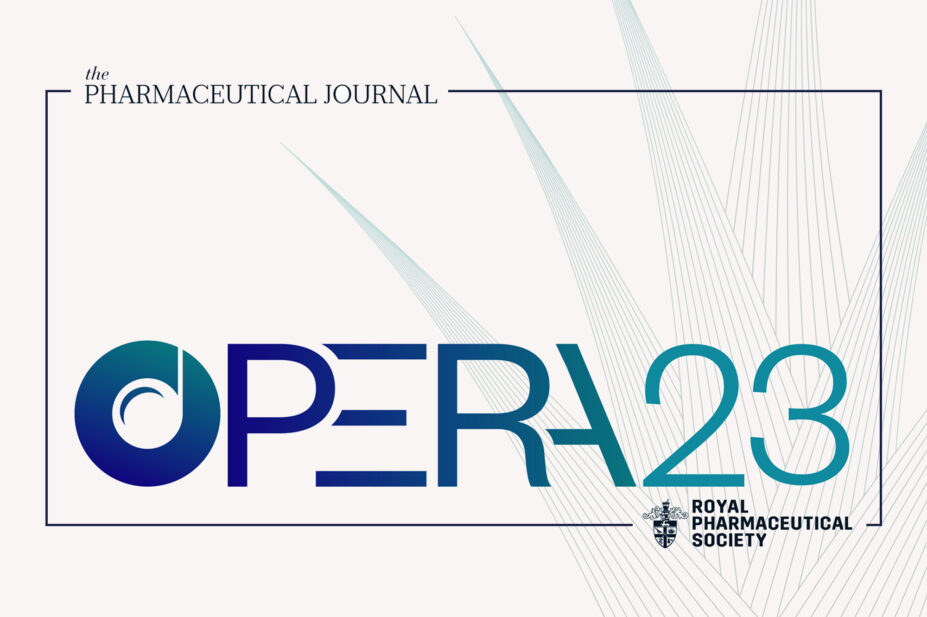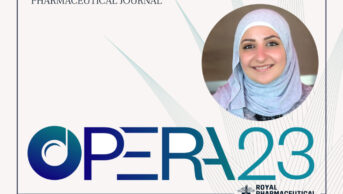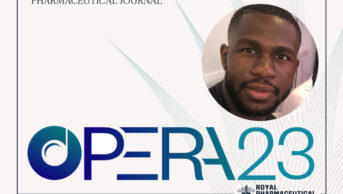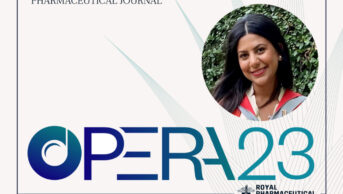
The 2023 ‘Outstanding Pharmacy Early-career Researcher Award’ (OPERA) is The Pharmaceutical Journal’s first prize and recognition programme since the successful ‘Women to Watch’ initiative, which was established in 2020.
OPERA is aimed to recognise and celebrate the work of early-career researchers working within pharmacy research, who demonstrate potential to achieve world-leading status and can act as role models and inspire others to enter and persevere with a career in research.
After 8 months, 25 nominations for 19 individuals, more than 30 hours of deliberation, nearly 5 hours of interviews and several hundred emails, The Pharmaceutical Journal is pleased to announce an impressive shortlist of 9 inspirational early-career researchers, as well as the overall winner and one ‘highly commended’ nominee.
As an entirely new award, we had no way of knowing what the response would be like from readers, and we were blown away by the standard of high-impact work being produced by early-career pharmacy researchers. It was my job to co-ordinate the selection process under the guidance of Parastou Donyai, chief scientist at the Royal Pharmaceutical Society, but this process has not always been easy and there were plenty of challenges.
Improving the nomination criteria and judges’ scoring
We worked with an independent panel of judges drawn from across the pharmacy research community, who have wide-ranging expertise and experience as researchers to assess the nominations. Individual nominees were scored separately by three judges against the initial criteria for nomination:
- Originality, quality, and scientific merit of outputs;
- Impact, translation and application of research for the field of pharmacy;
- Independence, creativity and public engagement of the researcher.
Nominees were allocated to judges carefully, guarding against potential conflict of interest. During a virtual meeting, judges produced an initial shortlist using the previously submitted scores for each of the criteria for initial assessment to guide the discussion.
The standard was extremely high and, as the judges began to critique individual nominations, it became clear that we would need to draw from the nominees’ depth of expertise and make some difficult choices.
There was unavoidable subjectivity when interpreting the scoring criteria, which we were careful to acknowledge during discussions. There was also huge variety in the research areas represented, ranging from primary research conducted in the laboratory to qualitative research looking at patient experiences. The nominees were also working in very different contexts — some were full-time researchers working within academia, while others were based in practice producing research as a component of their clinical work. There was also the question of our definition of early career researcher, which we set as five years following a PhD, and how to compare pre-doctoral students with researchers further along in their journey.
The panel also had to overcome the qualitative differences when comparing individuals who had self-nominated and those who had been nominated by others, such as an experienced colleague, mentor or supervisor. For future years, we will look at adjusting the nomination system and whether we can make this a more uniform process with a consistent approach to testimonials and supporting evidence.
These variances were debated as part of the decision-making process, making every effort to account for specific contexts, but at all points used the initial scoring criteria as the benchmark to measure against.
After discussing each of the 19 nominees in full, the judges eventually produced at a shortlist of 9 who would progress to the final stage.
Direct advocacy and hearing the nominees’ voice
The nine shortlisted nominees were invited to attend a video interview where they could communicate more directly to the judges and advocate for their research. They were asked to prepare responses to three questions in advance, which would be captured via recorded video interviews conducted by editors at The Pharmaceutical Journal. The questions asked were:
- ‘Please provide a lay summary of your research’;
- ‘Please describe the impact your research is already having’;
- ‘Please tell us about the individual paper you are most proud of and why’.
The videos were then shared with the judging panel who reconvened for a final meeting to select an overall winner.
Each nominee made a compelling case and the impact of their work at such an early stage in their careers was extremely impressive. There was a rich array of examples where their work had already driven improved outcomes with potential for much more meaningful impact in the years ahead. International guidance had been changed, new therapies and enzymes developed and commercialised, and emerging technologies harnessed.
After three hours of discussion and debate, the judges eventually arrived at their decision to award Stephen Kelly, lecturer in pharmaceutical microbiomics at Queen’s University Belfast, as the winner of OPERA 2023. Victoria Speed, senior anticoagulation pharmacist and clinical informatician at King’s College Hospital and the University of Oxford, was awarded the ‘highly commended’ accolade.
Work to do to ensure wider representation
Although a rich diversity of pharmacy research work was represented, we found that some of the UK nations and regions were underrepresented, something we will need to proactively look to improve in future.
Streamlining the judging process
The judging process was also lengthy and we had to ask the judges and nominees for a lot of patience as we worked through scheduling challenges. We will also now have an opportunity to take feedback from those involved and look for ways to improve the process in 2024 and beyond.
Time to celebrate
For now though, it is a time to celebrate the incredible achievements of the early-career pharmacy research community and congratulate our worthy winners.
I would like to express my sincere thanks to the nominees, nominators and judges, particularly the support of Parastou Donyai, all of whom have given their time and support enabling us to successfully launch the award.
We are already looking forward to OPERA 2024, with nominations set to re-open later in the year — watch this space.
Alex Clabburn, Senior Editor, Research and Learning
Click here to see the full OPERA 2023 shortlist


